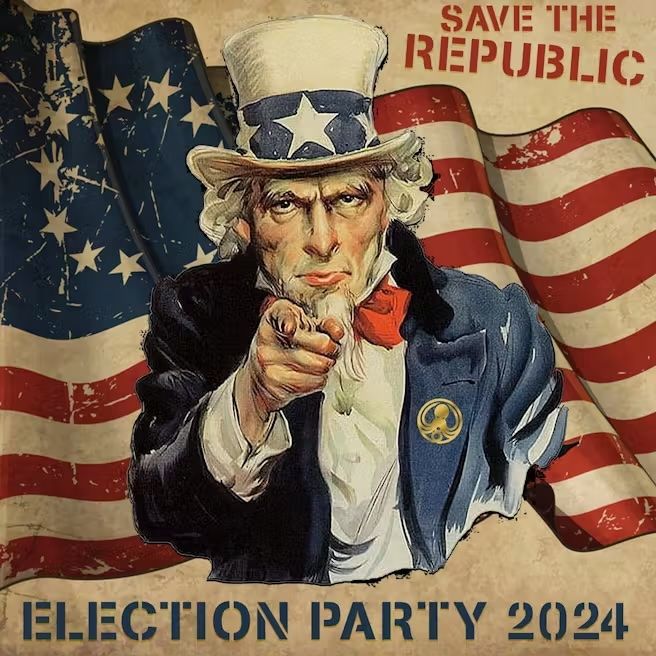
Nashville's Walled Gardens
⛲️ Nashville's competing visions · Comptroller didn't say so · Early voting stats · Much more!
Saw a tweet this morning, and it triggered me. “The people of (almost) Belle Meade want a city of private enclaves, reliant on cars. The rest of us want a vibrant city, connected together working for all Nashvillians. Developers 🤝 labor unions working together to get us moving.”
Let’s set aside the hilarious developer and labor unions line here and focus on the claim that some want a Nashville of private enclaves while others want a vibrant city for all Nashvillians (or whatever). I don’t think this is exactly the right way to split the city up, but there is some truth to it.
One of the charms of Nashville is that access to the surrounding rural areas is easy and accessible for those who live in the city. But you have to have a car to access these rural areas. It's also true going the other way. It is relatively easy (less so each day) for those from surrounding counties to come into Nashville for events, work, farmer's markets, etc.
The suburbs in Davidson County are also nice. I would frequently hear this from visitors growing up, remarking on how clean and green everything was across the city. People like this aspect of the city, and for those who can afford to live in these formerly affordable suburbs, it's an attractive part of Nashville.
In Dallas, Los Angeles, or Atlanta, you have to wade through miles and miles of concrete and traffic just to leave the city proper and reach the hinterlands. Additionally, the nicer suburbs bump up against the rest of the city and inherit many of their problems in a way that Nashville suburbs do not. They are private enclaves, but they are good private enclaves, which people will pay top dollar to raise families in.
Suppose the side effect of the transit plan is that these suburbs are pulled into the fold of swelling growth (probably inevitable), thus diminishing their attractiveness. In that case, residents will continue fleeing to the ring counties—and it's likely the pace will increase. Disrupting the private enclaves—and/or preventing the development of other such enclaves—will make them even more unaffordable than they already are. As it is, only the well-resourced have the means to insulate themselves from general Metro dysfunction by sending their children to private schools and shipping them out of the county in the summer to private camps and the like. Meanwhile, the rest of the city (in theory) will see property values plummet, rents flat bottom, and a poorer population move in.
Turning Nashville into a "walled transit garden" that is most accessible to tourists and residents living in the urban core will inevitably make traveling into the city less attractive for those in surrounding counties, and even those at the edges of the county in (almost) Belle Meade. A lot of this is inevitable. Nashville MSA is growing. But an important distinction there is that the city of Nashville (Davidson County) is not growing as domestic residents (American citizens) flee for the rings or move to other states entirely. The only population buoying the city's population is international migrants. This is a national trend, but it's particularly acute in Nashville proper.
The efforts to densify will do nothing to reverse the domestic out-migration issue. Instead, they will only expedite the well-established process of international migrants moving into the city and burdening social services. And since very few of them even speak English, public schools are forced to remake themselves to accommodate a growing body of foreign students.
These issues go much deeper than what happens politically at the city level and get into federal policy, especially as regards immigration. Much of Nashville politics seems to be reacting to tectonic forces thrust upon it by a reckless federal government seemingly intent on affecting demographic change. When they can, the city grabs onto the opportunities that present themselves, but let’s not humor ourselves here. We are not New York City, Chicago, or Los Angeles. Hell, we aren’t even Houston or Atlanta (yet).
Nashville is still barely a city, and though one of the main issues has to do with the city’s infrastructure (which goes beyond transit, obviously), what most city leaders seem entirely unconcerned about is why residents are leaving and seemingly content with importing migrants from around the world to take their place and sustain the little service economy that satisfies the urban lifestyle fetishes of some. It’s a model not long for this world, and mild opposition to bus expansion is a symptom of these greater cultural shifts, in which residents no longer feel the city government serves them. DAVIS HUNT
ELECTION NIGHT PARTY

⧖⧗⧖ SHOW YOUR SUPPORT ⧗⧖⧗
If you want to support our work at The Pamphleteer, a recurring donation is the best way. We have a $10/month Grub Street tier and a $50/month Bard tier. Membership gets you access to our comments section and free access to upcoming events.

🗳️ Early Voting: Day 12 Yesterday, the end of day tally for in-person voting in Davidson County was 173,593. Nashville is still 14,551 votes behind when compared to the same totals from 2020. Still, nearly 33 percent of all registered Nashville voters have cast their ballot over the last two weeks. When looking at the amount of regularly active voters in Music City, almost 40 percent have weighed in on this year’s election.
🚍 Comptroller Didn’t Sign Off On Transit Findings In September, we reported on Mayor O’Connell’s decision to omit the $6.9 billion long-term estimate of his transit plan on this year’s ballot. Instead, the mayor and council opted to include only the smaller, $3.1 billion present-day cost and $111 million in annual recurring costs.
Yesterday, Fox17’s Karen Aguilar reported that “critics of the Nashville mayor's transit improvement program argue the city is downplaying the real cost.” When asked about the $6.9 billion estimate, the mayor’s Deputy Communications Director Alex Apple explained that the number may vary. “There's nine main sources, and so it’s actually a conservative estimate because the financial plan had to be audited by the state comptroller,” he told Fox17 on the steps of the Historic Metro Courthouse. “It's not just Metro saying that this will work and that this pays for the projects we say it does.”
As it turns out, Tennessee Comptroller’s Director of Communications John Dunn might not agree with Apple’s assertion about the state comptroller’s role in the process. “There was a lot of reporting that we had to approve the feasibility study and we had to sign off on the Kraft CPAs’ work, which we didn't,” he told us in August. “We're not charged with doing that. All we had to do is approve them as a CPA firm and approve the procedures that they used.” Dunn then clarified that the Comptroller’s office will only become involved again if O’Connell’s plan is approved by the voters: “Then we would work with Metro to basically ensure they were following generally accepted accounting principles for this new revenue from this asset sales tax increase.”
💸 More Comptroller News This morning, the Comptroller’s Office of Research and Education Accountability (OREA) and Division of State Audit released their evaluation of a program to improve sales tax compliance among retailers of beer and tobacco products. The Retail Accountability Program (RAP) was created by the General Assembly in 2012, and “expanded to include nonalcoholic beverages, soft drinks, candy, and certain nonperishable foods” through 2025.
From fiscal years 2013-2023, the state has directly collected $36,597,304 in unpaid taxes, penalties, and interest revenue as a result of the program while costing the Tennessee Department of Revenue $3,896,089 to administer over that time period. Additionally, it is probable that more retailers began collecting and remitting the correct amount of sales tax to the state to avoid being identified by RAP. TDOR estimates $300 million was voluntarily remitted over the past 11 years as a result of RAP.
You can read the full report here.
DEVELOPMENT
- North Nashville Project Propose 4-Bedroom Apartments On West Trinity Ln (Now Next)
- Arizona-based restaurant group makes Tennessee debut in 12South (NBJ)
- Brooklyn-Italian restaurant Pelato to open second location (NBJ)
- Building housing venerable meat-and-three listed for sale (Post)
- Cafe opens in Woodbine (Post)

THINGS TO DO
View our calendar for the week here and our weekly film rundown here.
📅 Visit our On The Radar list to find upcoming events around Nashville.
🎧 On Spotify: Pamphleteer's Picks, a playlist of our favorite bands in town this week.
👨🏻🌾 Check out our Nashville farmer's market guide and yearly festival guide.
TONIGHT
🎸 Chaparelle @ The Blue Room, 7p, $25.88, Info
🎸 The Lemon Twigs @ The Basement East, 8p, $32.87, Info
🪕 The Po’ Ramblin’ Boys @ Station Inn, 8p, $20, Info
🎸 Matthew Welde @ Dee's Lounge, 6p, $5, Info
🪕 Bluegrass Night @ The American Legion Post 82, 7p, Free, Info

📰 Check out the full newsletter archive here.





